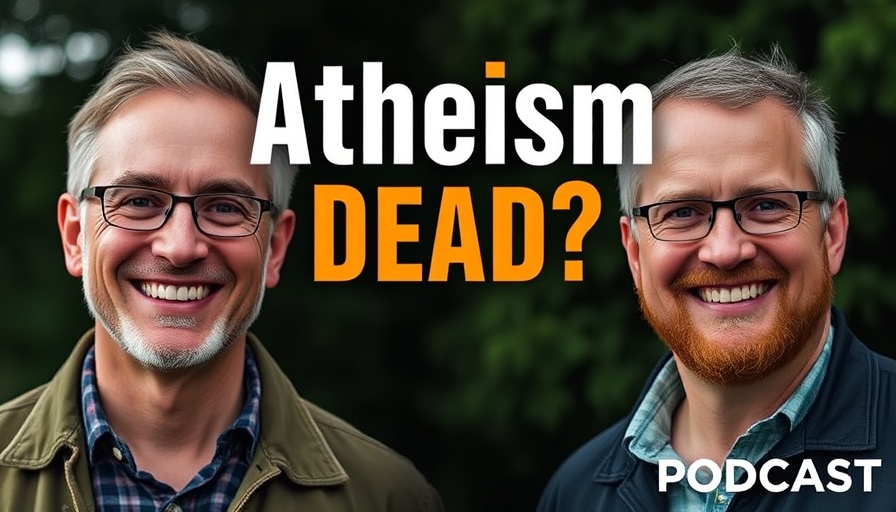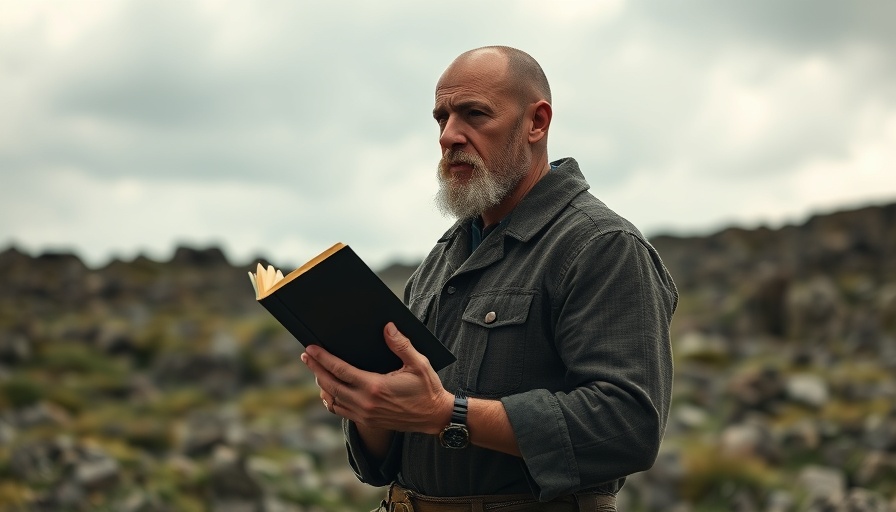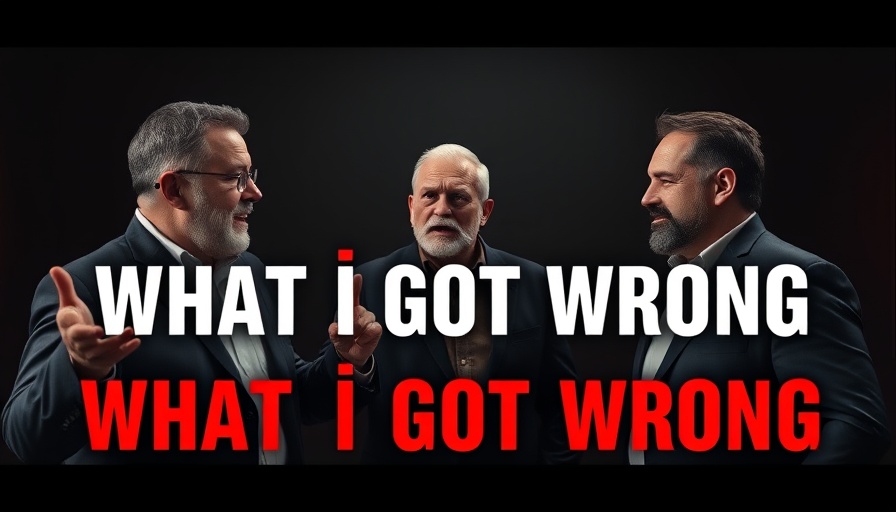
The Evolution of Apologetics and Cultural Understanding
In the podcast episode titled "AC Podcast #539 - Is Atheism Dead? An Interview with Dr. Frank Turek", there is a deliberate exploration of how cultural perspectives on faith have shifted markedly over the past few decades. Dr. Frank Turek, a veteran in the field of apologetics, discusses these changes with Andy Stiger, emphasizing how our conversations around God, religion, and morality have evolved significantly.
In 'AC Podcast #539 - Is Atheism Dead? An Interview with Dr. Frank Turek', the discussion dives into how cultural perspectives on faith have evolved, sparking deeper analysis on our end.
Transitioning from Atheism to Broader Beliefs
One major observation is a noticeable decline in the outright aggression of new atheism. Dr. Turek mentions that while he used to encounter many assertive atheists questioning the validity of Christianity, this is no longer the case. Instead, the dialogue has shifted toward a more moralistic approach. Individuals now seem more inclined to question the moral implications of Christianity rather than its theological assertions. This raises the provocative question: Are we witnessing not the death of atheism, but rather the birth of a newfound openness to exploring moral frameworks rooted in faith?
Faith and Morality: A Cultural Shift
Interestingly, Dr. Turek points out that society's focus has transitioned from asking if God exists to questioning whether Christian morals are 'good'. This alteration suggests that people are aware, at some level, of absolute moral truths while simultaneously expressing skepticism about their origins. For many, the question is no longer, "Is Christianity true" but rather, "Is it good for my life?"
A Reflection on Individualism vs. Community Ethics
This shift towards personal morality reflects a broader cultural trend towards individualism, where people seek what feels right for themselves. The idea of a 'religious buffet' becomes relevant here; individuals selectively pick elements of faith to align with their desires while discarding any restrictive morals. Dr. Turek aptly describes the concern this raises: "If everyone creates their own moral standard, does any standard truly hold?" This individualistic perspective not only shifts the conversation but also complicates traditional apologetic methods that relied on logical arguments for God’s existence.
The Power of Engagement in Today's Culture
For believers and those engaged in apologetics, understanding this cultural evolution is crucial. The techniques used to convey faith need to adapt to this new landscape. Skeptics and non-believers are likely to reject abstract arguments if they clash with their personal moral constructs. Instead, apologists can foster relationships built on mutual respect and understanding. Engaging in conversations that directly address moral inquiries could uncover deeper truths and lead to more fruitful discourse.
Harnessing the Opportunities of Modern Platforms
The rise of social media and online platforms greatly enhances accessibility to conversations about faith. Dr. Turek shares that platforms like YouTube enable apologists to reach millions, sparking curiosity about faith in ways that traditional formats don’t. This is a significant opportunity for believers to embrace technology in sharing their understanding of faith and morality.
Addressing Moral Complexity in Apologetics
The nature of moral discourse means that while individuals may feel an inherent sense of right and wrong, they often grapple with conflicting moral beliefs that challenge traditional definitions of good and evil. The task for apologists, therefore, is twofold: to address these complexities and to encourage individuals to consider the source of their morality. By inviting them to explore divine moral standards against their personal beliefs, discussions around faith may become rich terrains for discovery rather than contentious debates.
As we consider these dynamics, Dr. Turek emphasizes the need for believers to articulate their views on morality with clarity. Engaging openly and passionately about the source of our ethical beliefs not only challenges the modern skepticism but also fosters a deeper understanding of faith as an integral part of our moral compass.
Conclusion: Bridging the Divide
The landscape of apologetics is evolving. For those navigating the intersection of faith and culture, it is essential to build bridges over the changing waters of belief and morality. As we engage with others, let us remain committed to presenting Christ’s teachings as solutions to moral questions, reflecting that the search for truth often leads us back to Him. By doing so, we might not only satisfy intellectual inquiries but also touch hearts on a deeper emotional level.
If you are interested in learning more about how faith and moral discussions shape our culture, consider exploring Dr. Turek's works or joining local groups dedicated to apologetics and exploring these pressing questions within the community.
 Add Row
Add Row  Add
Add 








 Add Row
Add Row  Add
Add 

Write A Comment